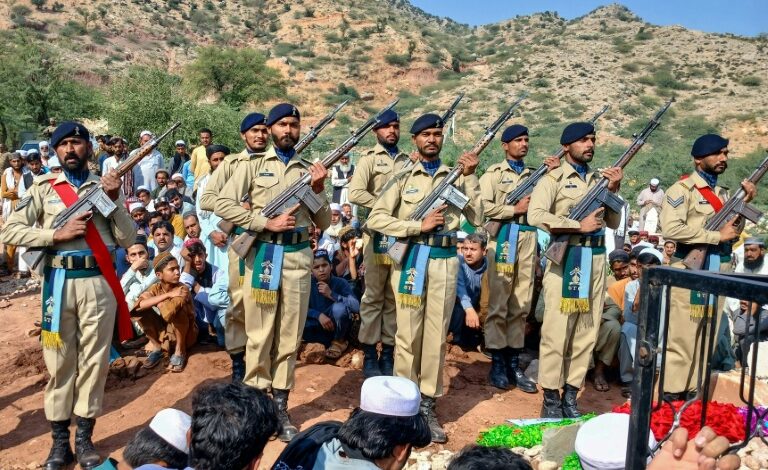Pakistan, Afghanistan to Hold Urgent Talks After Deadly Strikes

UPDATE: Pakistan and Afghanistan are set to engage in urgent talks in Qatar today, following a deadly escalation that has left at least 10 civilians dead. The discussions come a day after Pakistan launched air strikes across the border, breaking a fragile ceasefire that had only recently halted days of intense violence.
Pakistan’s Defence Minister Khawaja Asif and intelligence chief General Asim Malik will arrive in Doha to meet with a high-level delegation from the Afghan Taliban, led by Defense Minister Mohammed Yaqub. The talks, confirmed by both sides, aim to address rising tensions after the deadly strikes in Afghanistan’s Paktika province late Friday.
In a shocking turn of events, an Afghan Taliban official accused Pakistan of violating the ceasefire, claiming the air strikes targeted multiple locations, resulting in civilian casualties. “Afghanistan will retaliate,” the official warned, highlighting the escalating conflict.
The air strikes killed 10 civilians and injured 12 others, including two children, according to a provincial hospital official. Additionally, the Afghanistan Cricket Board confirmed the deaths of three players involved in a domestic tournament, prompting the board to withdraw from the upcoming Tri-Nation T20I Series with Pakistan.
On the Pakistani side, security officials stated that the strikes were precision operations targeting the Hafiz Gul Bahadur Group, a faction linked to the Tehreek-e-Taliban Pakistan (TTP). This group has been implicated in a recent attack that left seven Pakistani paramilitary troops dead.
The backdrop of this violence is rooted in long-standing security concerns, with Pakistan accusing Afghanistan of harboring TTP militants, a claim Kabul vehemently denies. The cross-border tensions escalated significantly after previous violence in Kabul coincided with a visit by the Taliban’s foreign minister to India, intensifying Pakistan’s security posture.
As the ceasefire began at 1:00 PM GMT on July 12, 2023, Pakistan had hoped for a peaceful resolution. However, following the air strikes, both nations are now grappling with the fallout of renewed hostilities.
Pakistan’s Defence Minister further escalated rhetoric by stating that future diplomatic efforts would not be framed as peace appeals, suggesting a shift towards a more aggressive stance. “Wherever the source of terrorism is, it will have to pay a heavy price,” Asif wrote on social media platform X.
Meanwhile, Taliban spokesman Zabihullah Mujahid asserted that their forces have been instructed to refrain from attacks unless provoked. “If they do, then you have every right to defend your country,” he told Afghan media.
As both nations prepare for talks, the international community watches closely, knowing that the outcome may dictate the region’s stability. The situation remains fluid, and further developments are anticipated as the delegation meets in Qatar today.
Stay tuned for updates as this story unfolds.






